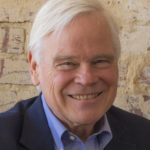Here’s a trivia question: Name a novel by a North Carolina writer about a fictional author who traveled abroad and struggled with returning to the complexities of American culture?
If you know your North Carolina literary history, your knee-jerk reaction might be “You Can’t Go Home Again” by Thomas Wolfe. Published in 1940 after Wolfe’s death, the plot follows an author who wrote an acclaimed book, traveled to Paris, London, and New York, and struggles with being able to return to his hometown.
If you are up to date with more current North Carolina authors, you know that these themes are explored afresh by our most recent National Book Award winner, Jason Mott. Mott grew up and still lives in Columbus County, is a double graduate of UNC-Wilmington, and is a professor there. He’s a North Carolinian through and through. In his new novel, “People Like Us,” the question of whether you can return home again is alive, well, and all too pertinent.
If you have not read any of Mott’s novels, you have a treat ahead of you. Mott bends genres and leans into his background and expertise as a poet to create visceral, vivid scenes that make his books hard to put down.
I’m drawn to realistic fiction and generally like to keep both my feet on solid ground. I shy away from anything with too much shape-shifting or supernatural elements.
Mott’s debut novel, “The Returned,” published in 2011, featured the reappearance in fully-human form of people who died years ago. I’ll admit, I was skeptical. But his ability to persuade literalists like me to suspend disbelief opened the door to my enjoying his provocative stories, laced with intoxicating magical realism.
In his 2018 novel “The Crossing,” he blurred the lines of reality in a dystopian story of teenage twins coping in a world battered by deadly disease and war. And then, in 2021, he captured the National Book Award with “Hell of a Book” using surreal elements, “audacity and invention” to wow the panel of judges judges.
And now, fresh off the presses, “People Like Us,” while not exactly a sequel to “Hell of a Book,” pulls some of the same characters into yet another blending of the mundane and the otherworldly. Mott’s toolbox of magical realism, time travel, and hallucinatory passages allows his characters—and his readers—to process difficult issues.
Stretching from familiar North Carolina all the way up to the cold reaches of Minnesota and even farther, across the Atlantic to Europe, Mott uses interlocking storylines of two main narrators who are alike in some ways but shaped by their own unique struggles.
Mott situates us on ground we recognize—post-pandemic America, full of both sunshine and lurking, dark shadows. He doesn’t flinch from the hard stuff—gun violence, divorce, suicide, racism—laying them out with an honesty that startles.
He treats these weighty themes not just with the gravity they demand, but with a surprising mix of wit, irony, and even tenderness. Mott pulls it off with grace, vivid detail, and, at times, something close to poetry.
For anyone who has wondered if they belong in their family, in their school, in their hometown, or in their country, Mott offers a reminder that’s both bracing and comforting: those doubts are not yours alone. You’re not as alone—or as different—as you might think.
No matter your view on the Second Amendment, no matter your race, no matter if you are a Southerner or someone from the Midwest, you’ll see yourself in these characters. They are grieving, struggling with questions of identity and belonging, and searching to find their place, whether that means a spot on the map, a moment in history, or a role within their own family. In “People Like Us,” Mott makes it clear: there are, indeed, people like you.
Mott picks up where Wolfe and other North Carolina writers have left off, wrestling with the question of whether we can or can’t go home again. Percolating amidst the rollicking exploration of this question lies something even darker: a quiet alarm about the direction our country—our home—is taking. One character even suggests that “hell, for the right price, leaving America just might be the new American Dream.” You might find yourself nodding in agreement.
 D.G. Martin, a lawyer, retired as UNC system vice president for public affairs in 1997. He hosted PBC-NC’s “North Carolina Bookwatch,” for more than 20 years.
D.G. Martin, a lawyer, retired as UNC system vice president for public affairs in 1997. He hosted PBC-NC’s “North Carolina Bookwatch,” for more than 20 years.
Chapelboro.com does not charge subscription fees, and you can directly support our efforts in local journalism here. Want more of what you see on Chapelboro? Let us bring free local news and community information to you by signing up for our newsletter.

